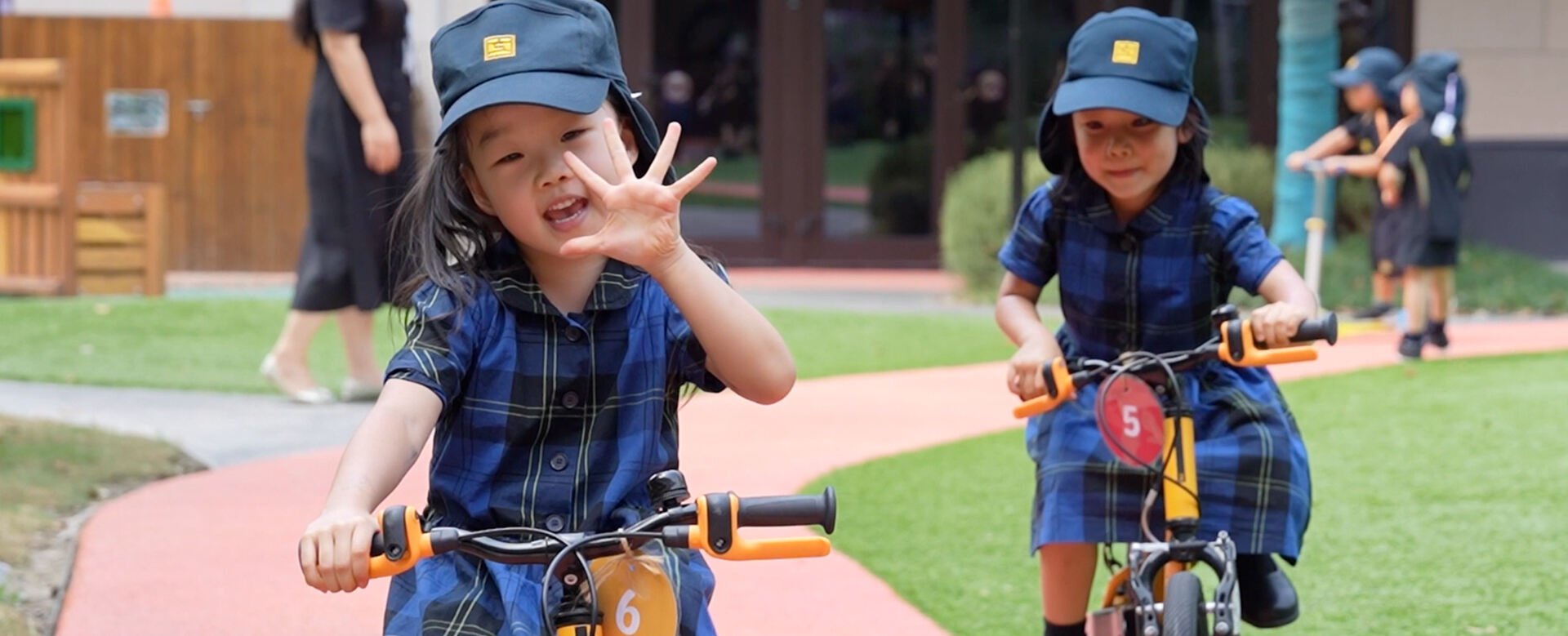
What does it mean to receive a bilingual education? At Hiba Academy Shanghai, we believe that it is about more than language. It’s also about ability and attainment. We want our youngest Hiba pupils to be able to speak and write with fluency in both English and Chinese so they can think independently, express themselves confidently and become happy lifelong learners.
This year, we have created two new positions at our nursery: Chinese and English curriculum coordinators, held by Angela Gu and Rob Spillane, respectively. Both bring extensive experience and a wealth of perspective to this very important job.
Chinese curriculum coordinator Angela has over 20 years of theory study and practical experience in early years education. She believes: “With bilingual and bicultural immersion, we not only help children to learn language and knowledge, but also build their character in a way that can benefit them throughout their lifetime.”
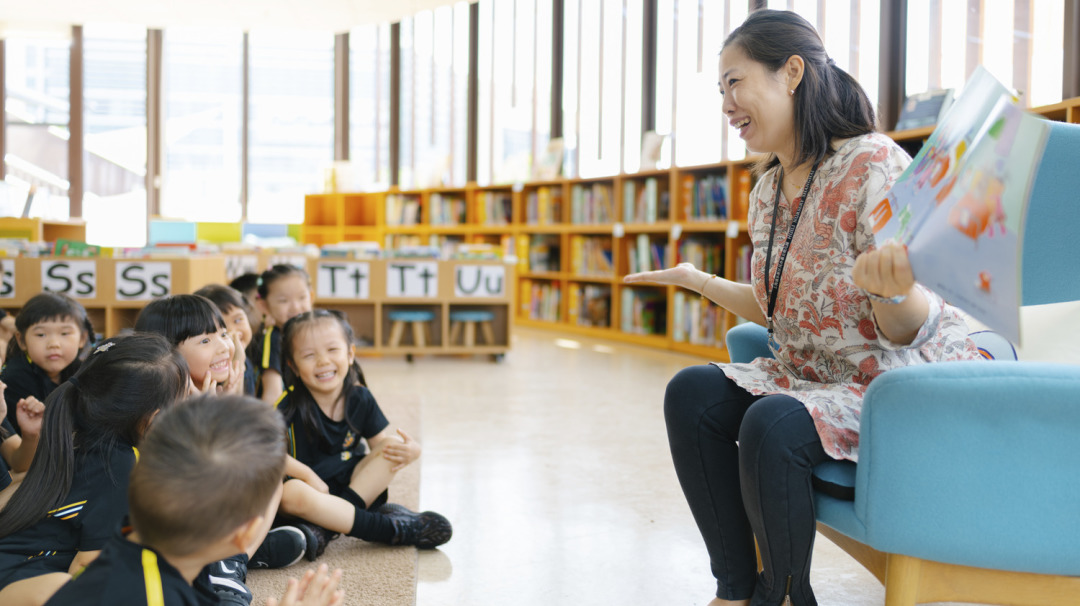
Language learning opportunities
are everywhere
Angela defines the importance of language acquisition as follows:
“Language input stimulates the brain, which has powerful positive downstream effects on cognitive development, of course. But it also has an impact on their social development. If they can communicate effectively with people around them, they are better equipped to build relationships with their peers.”
At the nursery, we incorporate language learning into our pupils’ daily routines. Using both languages in parallel, to cultivate a bilingual mindset. For instance, a teacher poses a riddle to the children and prompt them to answer in both English and Chinese. It quickly becomes natural for our children to use two languages and switch between them. We also incorporate this bilingual approach in the signage in our corridors, notices in the restrooms or decorations in the dining hall.
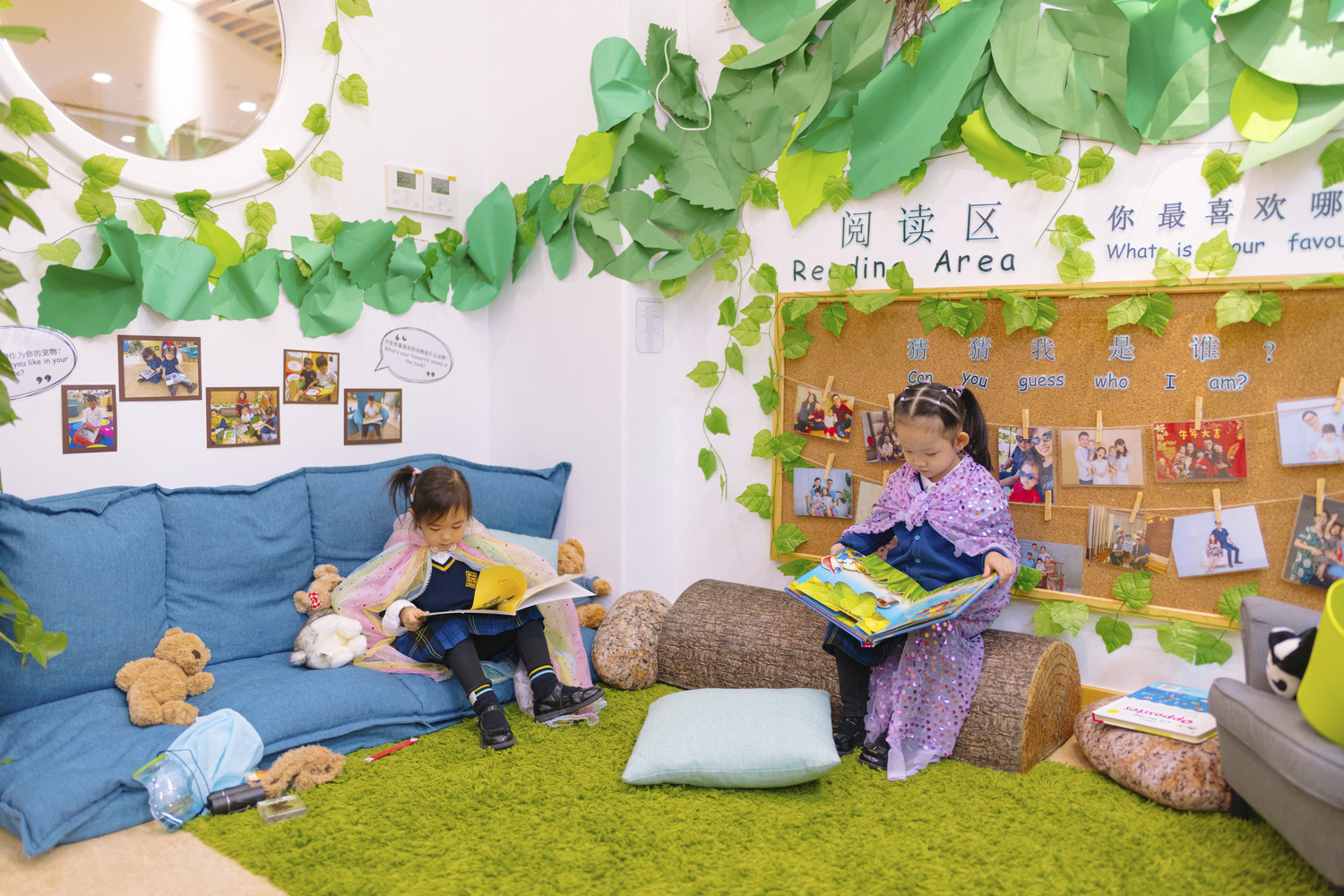
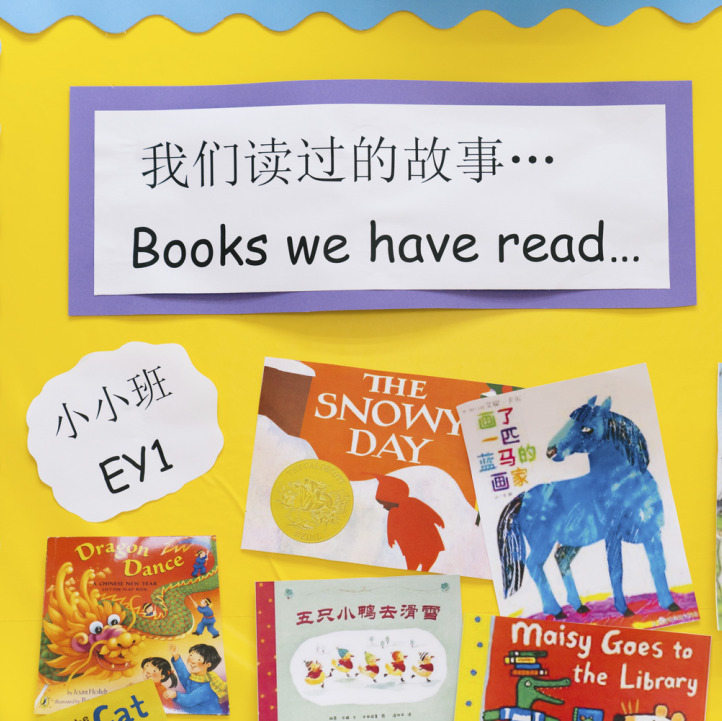
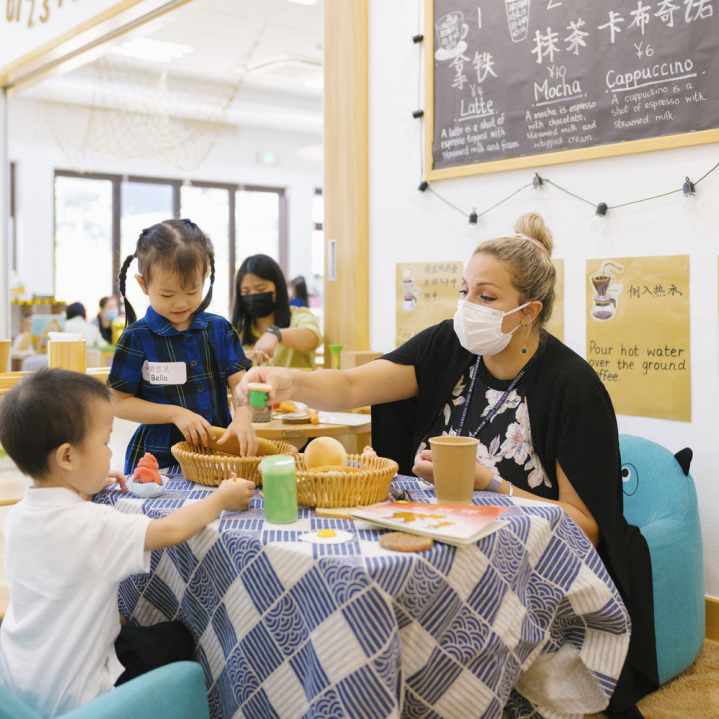
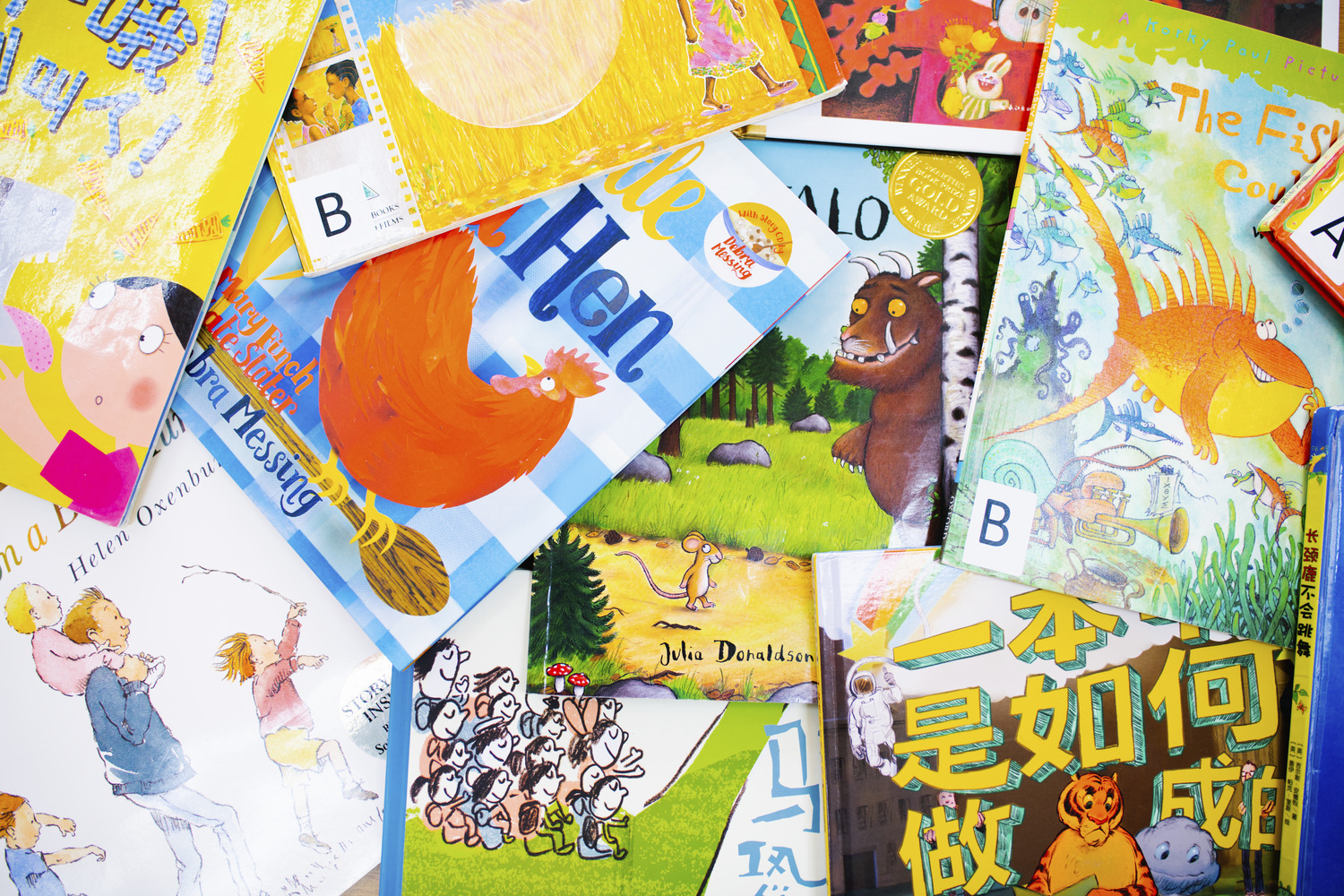
▲Bilingual decorations around thenursery
Language learning opportunities
hidden in details
Building strong positive relationships with teachers is essential to developing their communication and language skills. Interactions must be genuine and meaningful.
A close teacher-pupil relationship not only allows teachers to see each child’s individuality, but contributes to caring environment where children can grow and thrive.

▲Interactions betweenteachers and pupils
EY4 pupil Lucas, for instance, has demonstrated an interest in transportation. His Chinese teacher quickly took notice that he was interested in Chinese story book about how cities operate. To encourage Lucas in his pursuit of knowledge, the teacher invited him to be a little teacher and share what he learned in the book. Young Lucas successfully expressed himself in Chinese with his peers. It was an exercise in literacy, oracy and in building confidence.
Lucas’s international then followed up on this success, encouraging him to take a leadership role in building a small city with his fellow pupils.

▲Buildingstrong positive relationships with teachers is essential to developing their communicationand language skills
“Our Chinese and international teachers have open, diverse and transparent communicationat all times,” says Angela. “This cohesive collaboration has long-term benefits to our pupils. It is central to how we tend to every child’s development and a hallmark of our excellent education provision.” This is Angela's vision for the new semester and what is expected of all Hiba Nursery teachers.